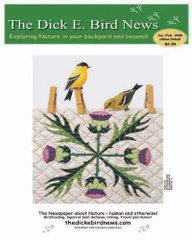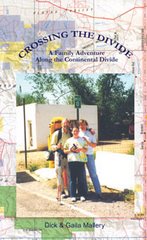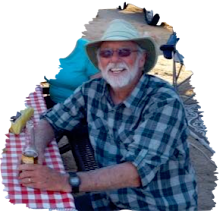No car, no house, no electricity, no job — it’s a liberating feeling.
Hiking, backpacking and mountain climbing improve your fitness level. We humans are animals, and as such, we have muscles to use. A host of diseases affect those who do not use those muscles.
When you backpack, you can eat like a pig and still lose weight. I started out with a 65-pound pack when my wife and I backpacked the Wonderland Trail around Mt. Rainier. When we finished 10 days later, we were down to our last few peanuts and raisins, and my pack weighed about 40 pounds. We each lost five pounds in body weight.
When you die, you cannot bring money or material goods with you. You carry forth only memories of your experiences. The struggles I’ve put my body through, whether it’s climbing a mountain or trudging to a campsite after a long day of backpacking, have exalted my spirit and imprinted lifelong memories.
One such memory is from my Mt. Rainier climb. We left Camp Muir (elevation 10,000 feet) at about 3:30 on an August morning, climbing in the dark over Cowlitz Glacier, Cathedral Rocks and then Ingraham Glacier. Taking a break, we saw the sun rise over Little Tahoma. It was like watching the world being born below us, the day coming alive in the cycle of death and rebirth.
True, there are tribulations, such as no plumbed toilets in the backcountry (one exception is Bright Angel Campground in the Grand Canyon). Answering nature’s call can be a mini-adventure in itself.
Nature is not a benign environment. Weather and predators can kill. Cougars have been known to stalk humans. It’s a good idea to carry a folding or sheathed knife with at least a four-inch blade. The folding knife must be capable of opening with a snap of the wrist. One survivor on Vancouver Island suffered bites to his neck because he needed both hands to open his knife to kill the cougar that was attacking him.
Be receptive to your experiences outdoors.
From the interior of the inland forests, Highway 101 southbound on the Olympic Peninsula suddenly bursts into the gray-white expanse of the Pacific at Ruby Beach. It is like coming out of a tunnel, or coming out of the womb. The trees have given way to the cathedral ceiling of sky. Now there is more light — a flat, gray light that reflects off the clouds, the gray-green ocean and the gray sand. The quiet of the forest has given way to winter’s thunderous clap of surf, a surge-and-give that rolls over sand and driftwood, eating away at the coast to leave behind sea stacks — hard rock islands of the previous shoreline.
Such moments are little epiphanies. As a physicist-turned-writer, I find that they occur more and more for me in the natural world, on that edge of experience where the mind is alert with the possibilities of remembrance. The moments pass quickly enough, but I’ve learned to recognize them.
Go out and recognize yours.
Subscribe to:
Post Comments (Atom)









1 comment:
Well said...
Looking forward to your writings.
DSD
Post a Comment